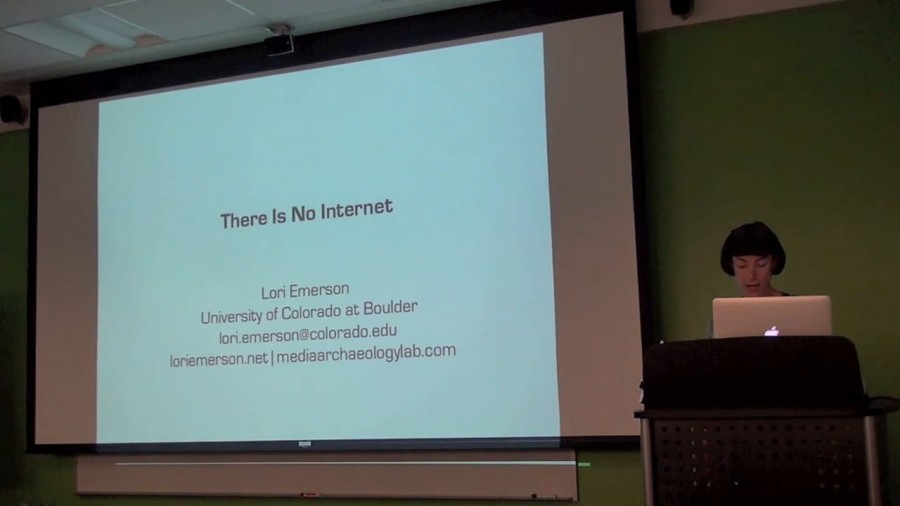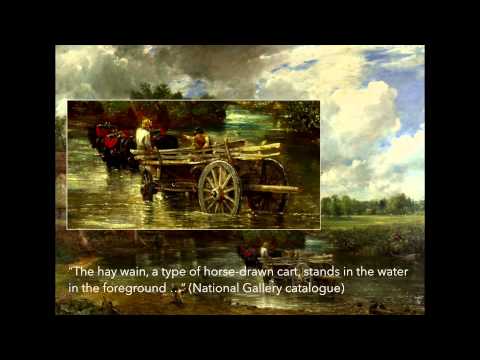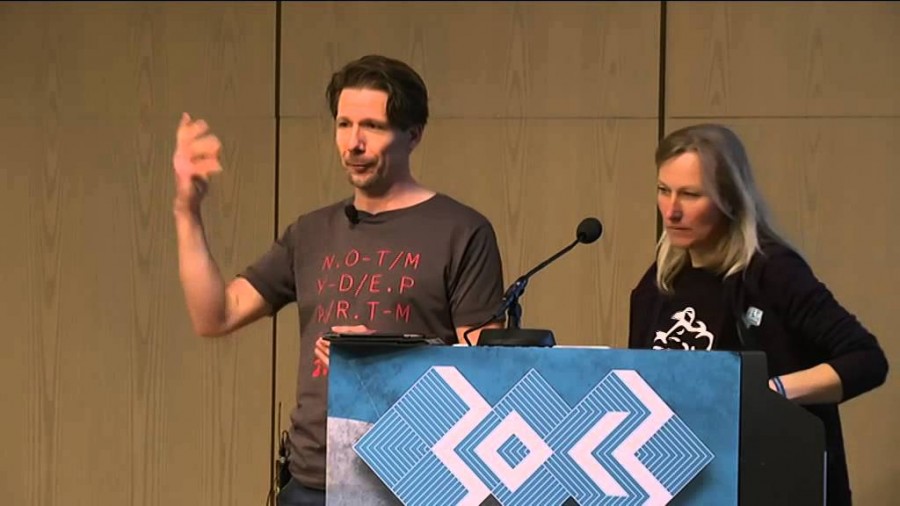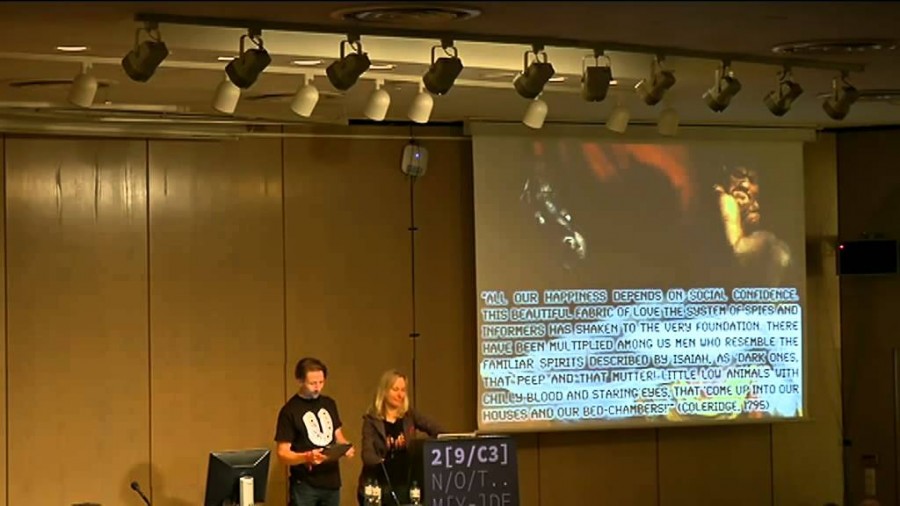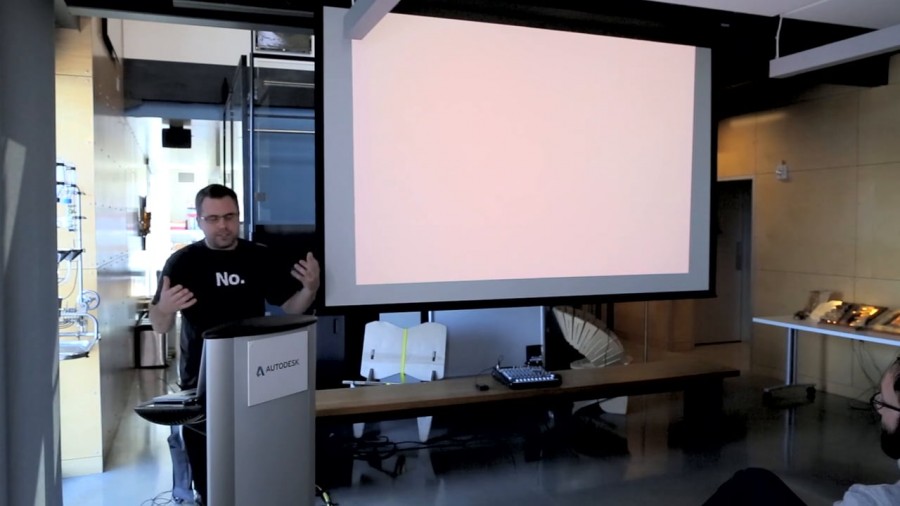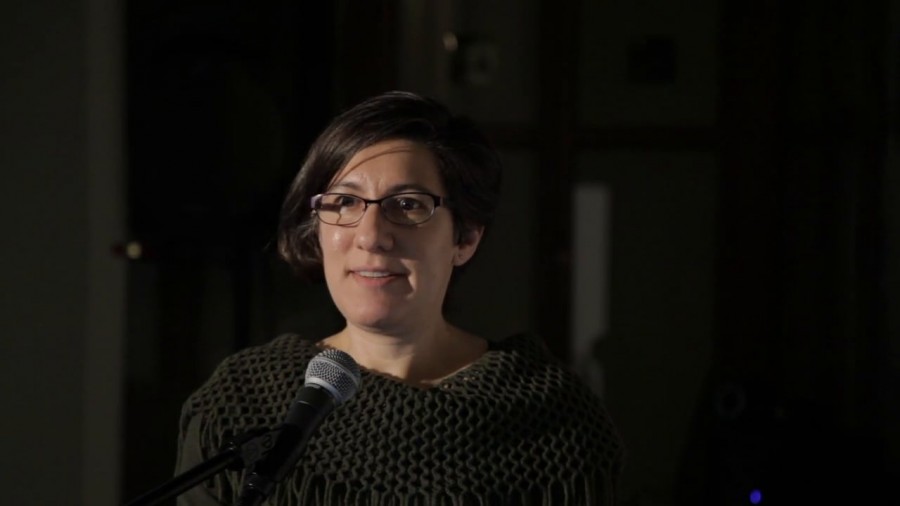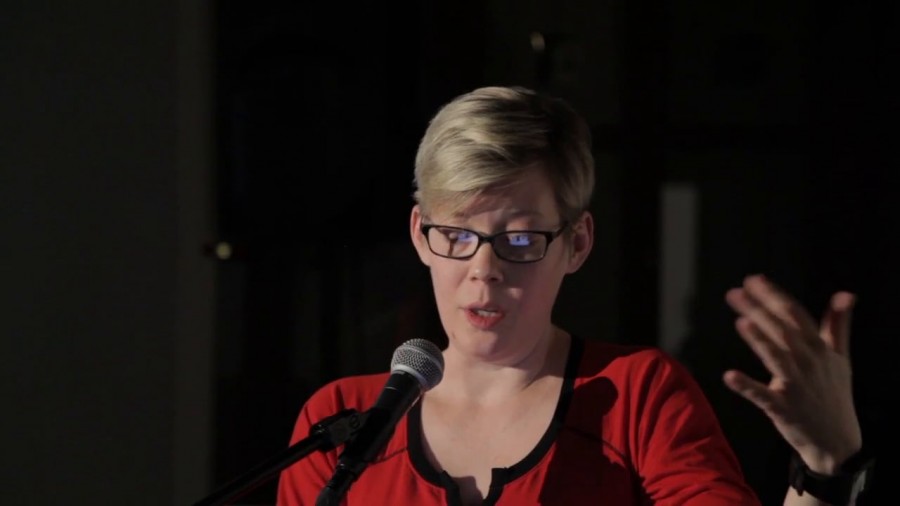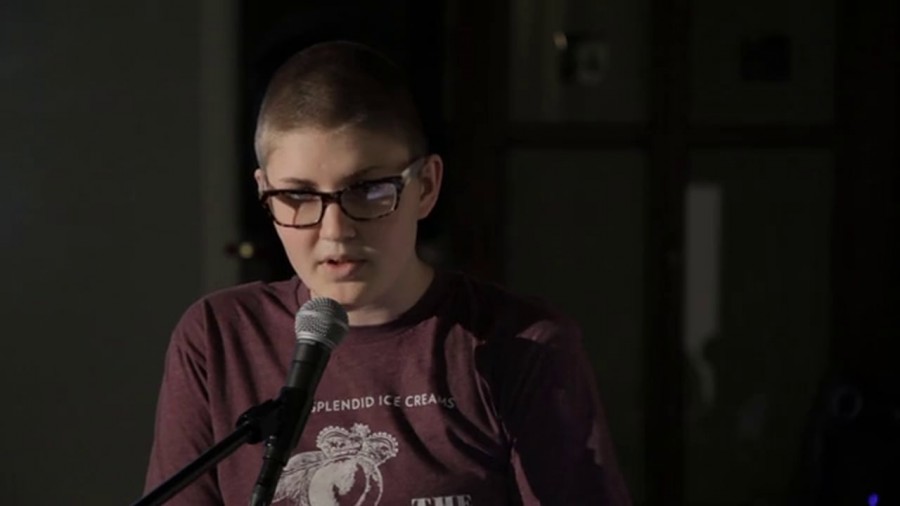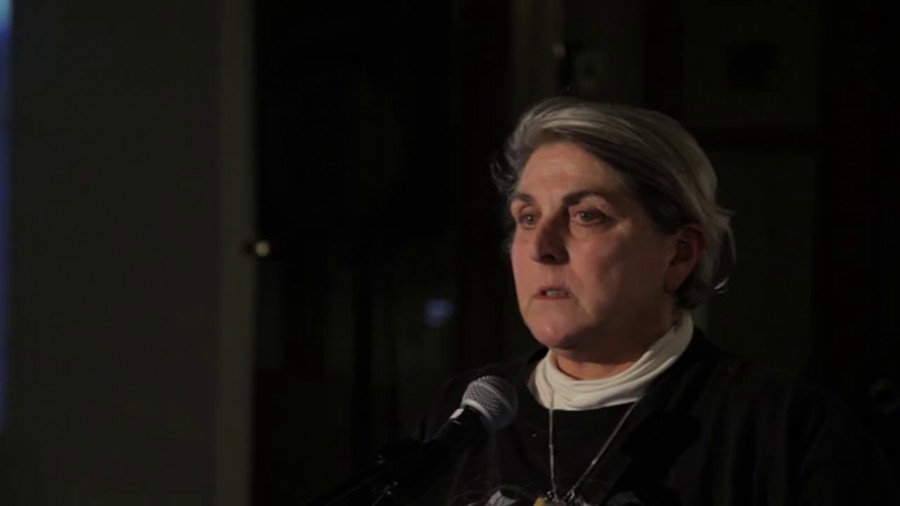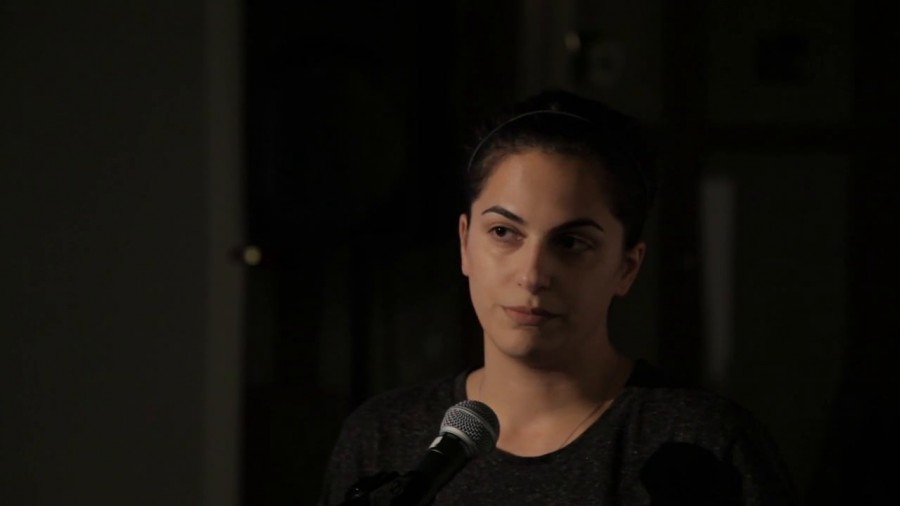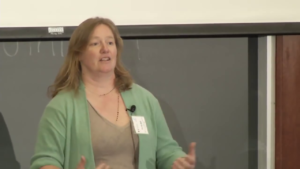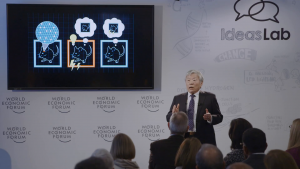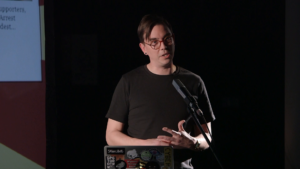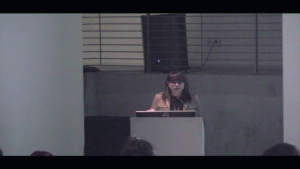What I’d like to do for probably the next 40 to 45 minutes is just first of all talk about how Reading Writing Interfaces as well as the Media Archaeology Lab underlie my next/current project that I’m calling “Other Networks,” which will lead me into an explanation of my kind of mysterious title “There Is No Internet.” And I’ll finish with talking about specific examples of other networks. When I say “other networks” I’m talking primarily about networks that were outside or before what we now call The Internet.
Emily Bell on Elusive Objectivity
presented by Emily Bell
This idea of control is so baked into the journalistic psychology that actually this articulation, done in a highly-controlled environment with an advertising agency, is one which even though it's not new to the open Web is still very very very new to journalism. And what we don't have at the moment is anything like a balancing investment in the kinds of things which allow us to participate in the crowd. Read more →

